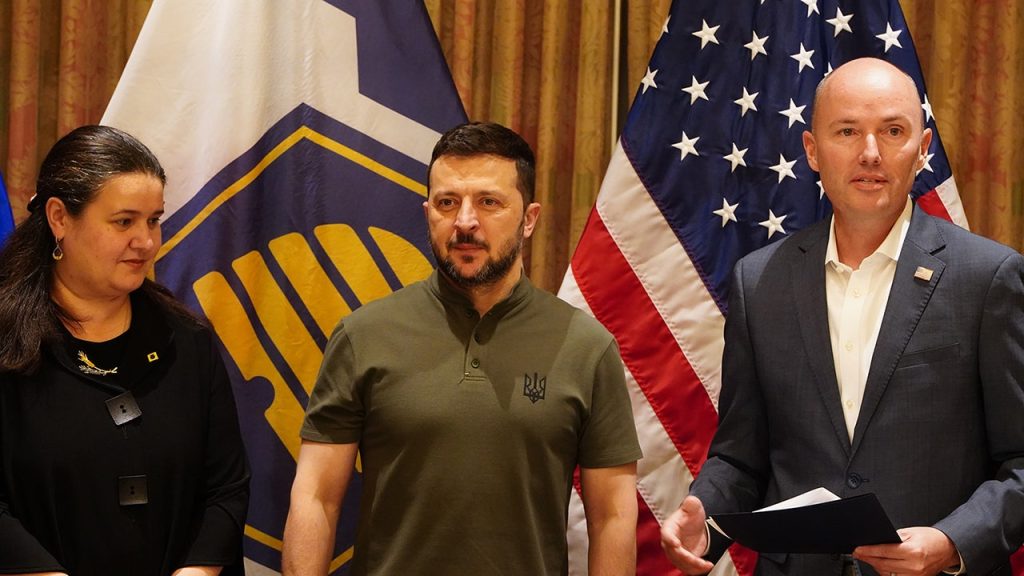Ukrainian President Volodymyr Zelenskyy’s recent visit to a U.S. Army ammunition plant in Scranton, Pennsylvania has sparked controversy among some Republicans, including House Speaker Mike Johnson, who criticized the event as being partisan in nature. However, White House and Pentagon officials have clarified that the visit was at the request of Ukraine to thank American workers for their role in boosting ammunition production to aid Ukraine in defending against Russia. While the elected officials present at the event were all Democrats, it was explained that this was due to standard procedure of inviting House and Senate members who represent the district where the visit took place.
Despite the criticism from Republicans, it was clarified that the presence of Democratic elected officials at the event was not a reflection of partisanship but rather a result of “geographical jurisdiction.” This practice ensures that officials from the districts where the visit is located are invited, regardless of their political affiliation. Zelenskyy had previously met with Republicans during his trips to other states based on the same rationale, with the choice of officials being determined by who holds office in the districts he is visiting.
Zelenskyy’s visit to Utah earlier this year, during which he met with Republican Governor Spencer Cox and the state’s all-Republican congressional delegation, was cited as an example of his non-partisan approach in engaging with U.S. political figures. Republican Senator Roger Wicker emphasized that if Zelenskyy were to visit Mississippi, he would be accompanied by Republican officials in line with the preference of the electorate. The U.S. Army facilitated Zelenskyy’s visit to the ammunition plant in Pennsylvania, and White House press secretary Karine Jean-Pierre emphasized that the visit was a response to a request from the Ukrainians, with a similar event having taken place in Utah without any calls for investigation.
The controversy surrounding Zelenskyy’s visit underscores the complex dynamics of international diplomacy and domestic politics, with implications for relations between Ukraine and the United States. While the visit was intended to demonstrate gratitude for American support in bolstering Ukraine’s defense capabilities, it has become embroiled in partisan disputes within the U.S. political landscape. Zelenskyy’s efforts to engage with both Democrats and Republicans reflect his desire to maintain bipartisan support for Ukraine, but the optics of his interactions with elected officials in specific states have raised questions about political motivations.
As the fallout from Zelenskyy’s Pennsylvania visit continues to generate debate, the focus shifts to the broader implications for U.S.-Ukraine relations and the role of partisan politics in shaping international interactions. While the Biden administration has emphasized the importance of bipartisan support for Ukraine, the controversy surrounding Zelenskyy’s engagements with Democratic officials has reignited concerns about the politicization of foreign policy. Moving forward, both Ukrainian and American officials will need to navigate these challenges to ensure that cooperation between the two countries remains strong and effective in addressing shared security concerns.


